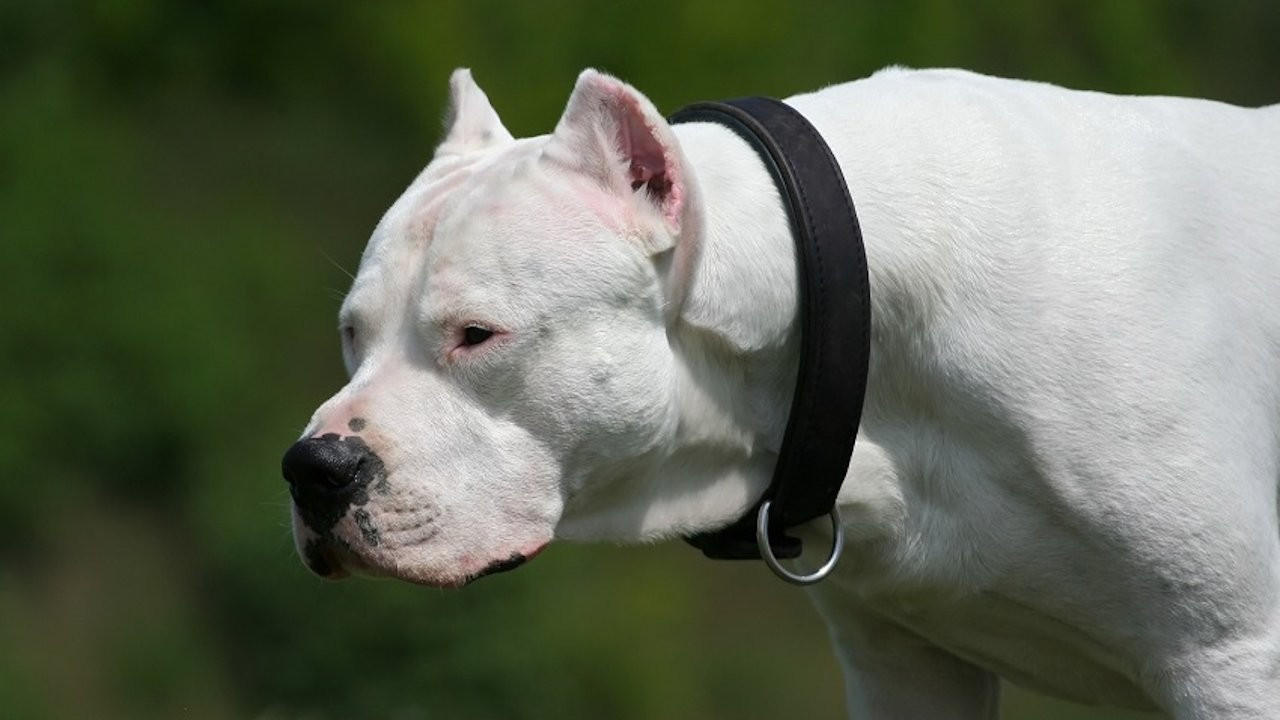Shepherd dogs subjected to fights, extreme brutality in Turkey
Reporting by daily BirGün reveals that in remote corners of Turkey, Turkish shepherding dogs (Kangals) are being subjected to violent, systemic dogfighting, and killed when they lose.
Duvar English
In cities throughout Turkey, large, indigenous, shepherding dogs are being subjected to violent and systematic dogfighting. These fights occur within formal leagues and venues with thousands of spectators, reports daily BirGün.
Kangal dogs are a rare breed indigenous to the Central Anatolian steppe. They are known, primarily, for their ability to protect sheep and livestock from violent predators such as wolves. They have long been a national symbol of Turkey - legend has it the dogs came with the ancestral Turks from Central Asia and were raised in Ottoman palaces. Turkey has long been trying to establish these dogs as a protected national breed.
Because of their size and strength, however, they have also been long abused by dog fighters and dog fighting rings. In recent years, says anti-dog fighting activist Cem Adıgüzel, they have been subjected to increasing brutality as the popularity of the violent “sport” has grown.
Adıgüzel travels around Turkey trying to break up these rings and rescue the dogs trapped within. He says that Kangal fighting is now well-established in at least 7 regions in Turkey and that there is a “Turkish League” established to track the winners of dogfighting tournaments. Betting on these dogs is wildly popular.
Kangal fighting was initially a practice that occurred primarily in smaller villages in Anatolia. As the popularity of betting on the sport grew, it spread to cities, where dogfighting leagues were established. After the establishment of the internet, the popularity of dogfighting rings exploded – dogfighting was advertised and shared widely on the internet, while dogfighting rings set up websites and advertised events.
Now, the fighting is organized into a clear structure. Initially, dogs fight in local tournaments, then advance on to larger regional tournaments, then finally to the “Turkish League” somewhere in Istanbul. These dogs’ progression is tracked and fights are organized on members-only websites.
There is a large amount of money circulating in this world. In a recent raid of a dogfighting ring, 800,000 TL in bets was confiscated. Adıgüzel says that likely millions of lira are bet on these fights.
Not only are dogs subjected to grueling schedules – during the fighting season from September to May, when the weather is cooler, they are traveling from city to city, fighting most mornings – but they are also kept in squalid conditions. Many of these dogs have been cross-bred with more aggressive sheep herding dogs to be more combative. They are kept in dark, dank containers and are incessantly beaten by their “barons” - the people that make them fight. Adıgüzel says that in some cases, the most brutal of owners will violently kill their dogs after they lose a fight.
Adıgüzel said one man in the Central Anatolian town of Kırşehir strangled his dog with a rope after he lost 20,000 Turkish Lira in a fight. A police officer in the Aegean province of Uşak shot his dog after it lost a fight. The bodies of dogs brutalized by their owners are often also found in the “squares” where the fights take place.
Regardless of these brutal discoveries, widespread dogfighting continues. The websites advertising these fights, such as “TRKangal,” mask themselves as animal advocacy organizations, but can only be accessed by members. Once members enter the site, they can view videos of dog fights, arrange fights, and make bets. The number of users actively using TRKangal is over 92,000.
Though exact numbers are not known, it is estimated that hundreds of thousands of people bet on dog fights in Turkey. Some owners make hundreds of thousands of lira by selling their dogs to fighting rings abroad.
For years, dogfighters got away with small fines and slaps on the wrists. However, because of the recently passed Animal Rights Law, punishment is now harsher - those who are caught fighting dogs can face over three years in prison and are now being sued for damages.
These fights, however, continue. Adıgüzel has hundreds of informants throughout Turkey who keep him abreast of fights and help him to stop them with law enforcement support. However, he still travels from city to city, trying to rescue the Kangals. He’s helped to rehabilitate hundreds and place them in loving homes, but the work comes at a cost. He regularly receives death threats and threats of violence from those who run the fighting rings.
At the time BirGün reported this article, Adıgüzel was on his way to Isparta, in the Aegean region of Turkey, to break up yet another fighting ring.

 Turkish municipality buries stray dogs alive after sedating themEnvironment
Turkish municipality buries stray dogs alive after sedating themEnvironment Turkey to ban four dog breeds as part of animal rights lawDomestic
Turkey to ban four dog breeds as part of animal rights lawDomestic Police make dogs attack couple when raiding their house in southeastern TurkeyHuman Rights
Police make dogs attack couple when raiding their house in southeastern TurkeyHuman Rights